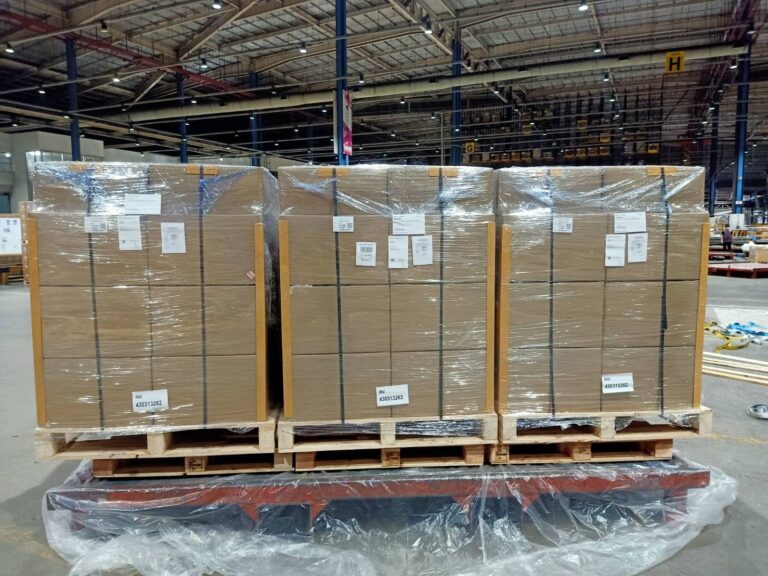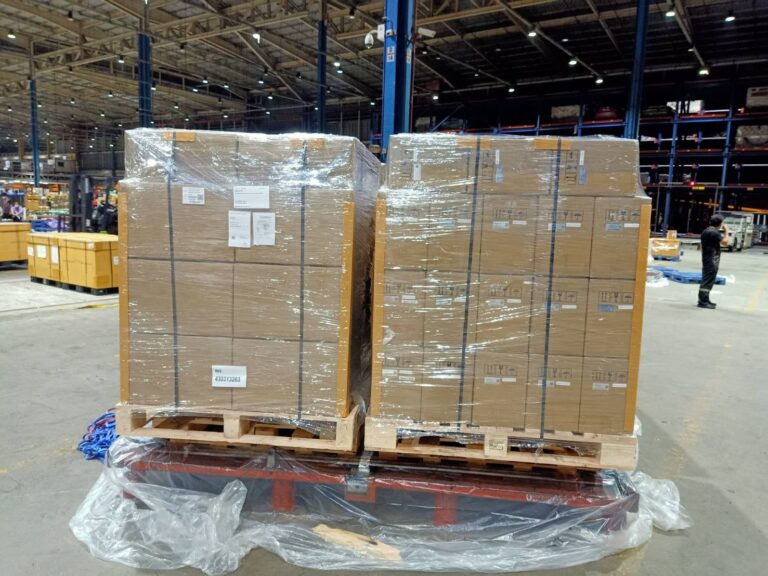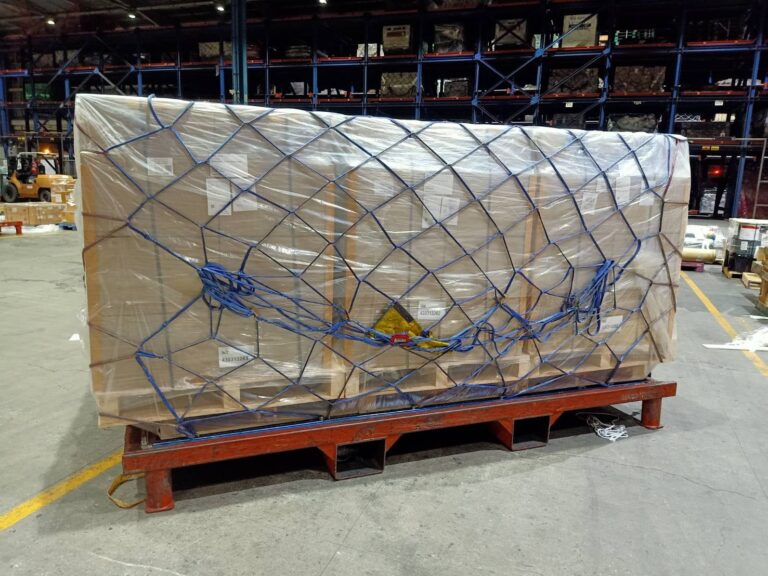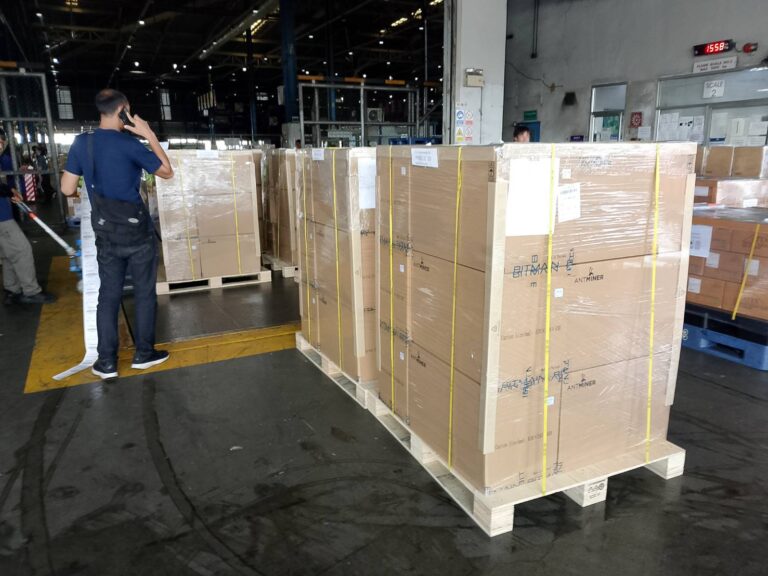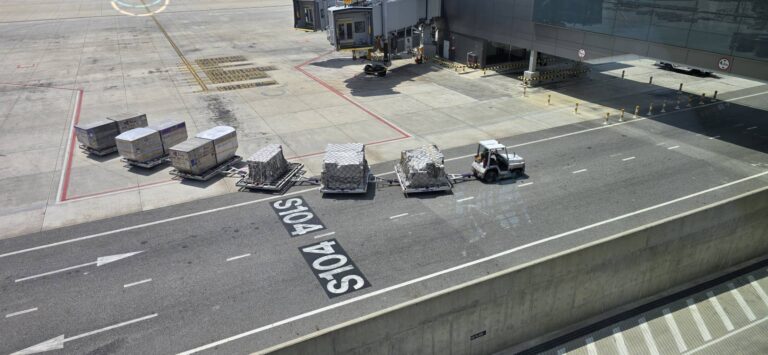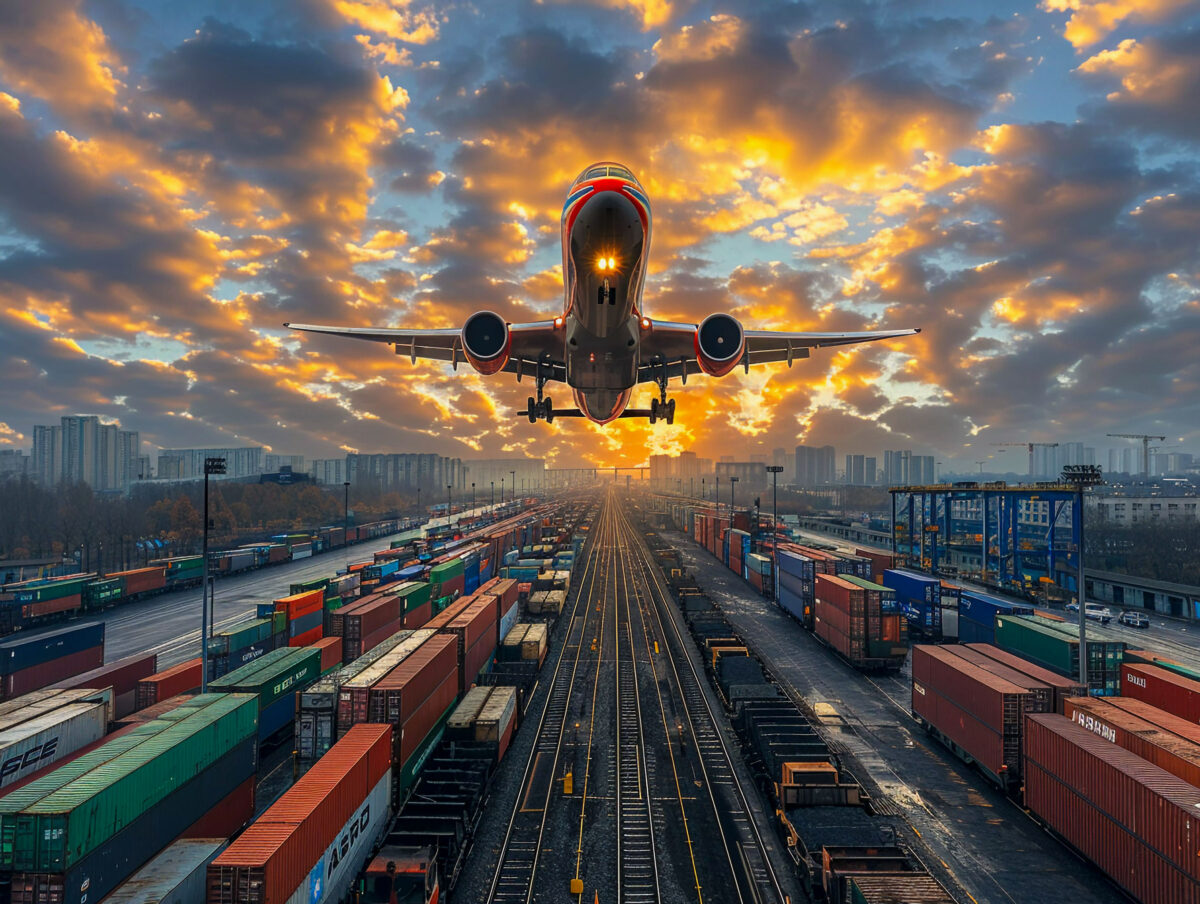
Freight forwarder Thailand plays a crucial role in air freight, which is a component of the supply chain for the rapid movement of goods internationally. This guide will explore the details of air freight, including its advantages, processes, and how Freight Rangers can be your partner for you.
Table of Contents
- What is air freight?
- What does an air freight forwarder do?
- What is air cargo vs air freight?
- What is the difference between air freight and express shipping?
- Who needs air freight?
- Why choose us air freight ?
- Our services
- Our Air Freight Process
- FAQs
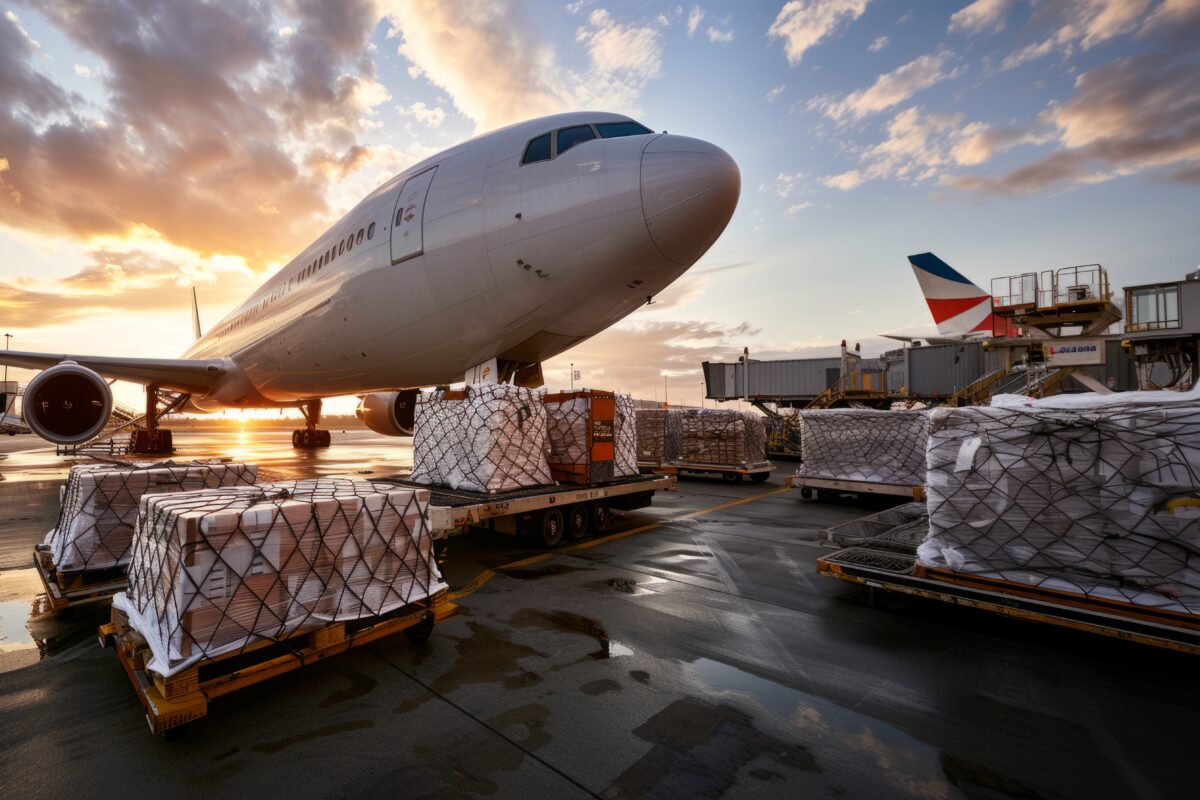
What is air freight?
Air freight is the fastest transportation of cargo by airplanes for time-sensitive goods, perishables, and high-value items. Here are the details of air freight
- Speed : Air freight is the fastest mode of international shipping, significantly reducing transportation times compared to sea or ground transport.
- Cost : The cost is influenced by factors like distance, weight, and fuel prices.
- Security : Air freight goes through security protocols compared to other shipping methods.
- Cargo : A wide variety of goods are transported by air freight including perishables, electronics, machinery, and valuable items.
What does an air freight forwarder do?
An air freight forwarder is like an agent between businesses and airlines. They manage various aspects of air cargo movement including
- Booking cargo space : Freight forwarders secure space on airplanes based on your needs depending on weight, dimensions, and destination.
- Customs clearance : They navigate the customs regulations, ensuring smooth passage through import and export procedures.
- Documentation : They prepare and manage all necessary documentation for air shipments such as commercial invoices, packing lists, and certificates of origin.
- Packing and labeling : Freight forwarders can provide packing and labeling services to ensure cargo meets airline and international regulations.
- Tracking and tracing : They offer real-time tracking and tracing of your shipment.
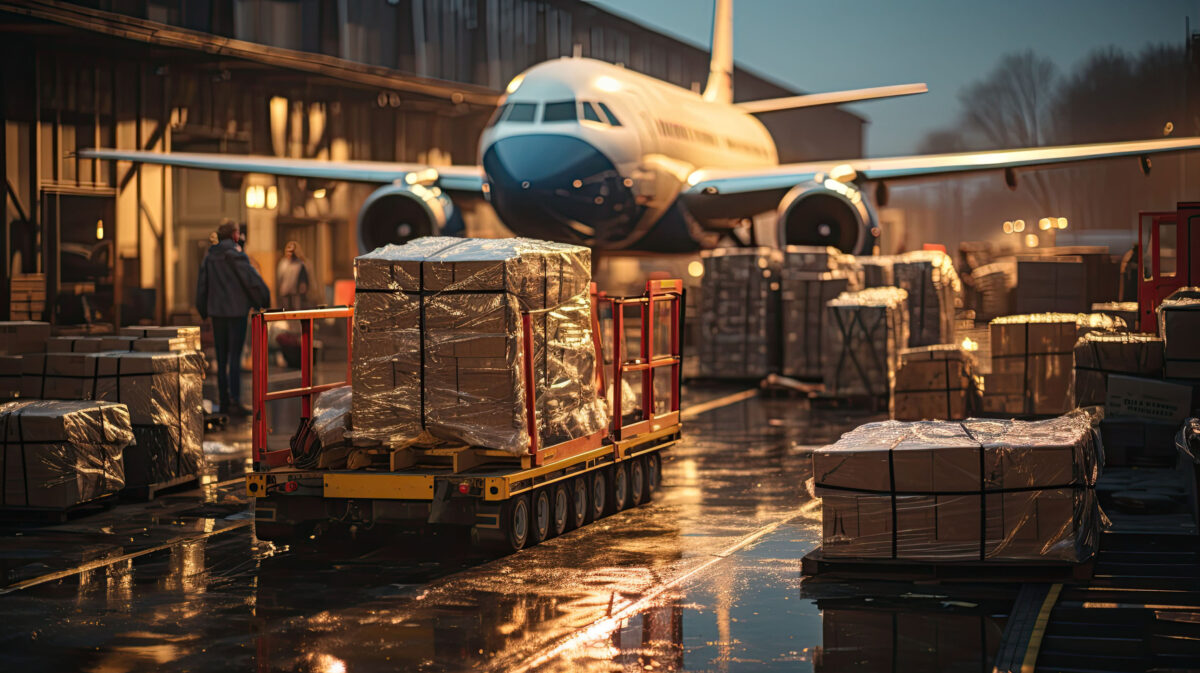
What is air cargo vs air freight?
There are some differences between the term air cargo and air freight
Air Cargo
Air Cargo is a wider term for any goods transported by air including from passenger luggage and mail to live animals.
Air Freight
Air Freight specifically refers to commercially shipped goods on airplanes.
Why Freight Rangers is a Leading Freight Forwarder in Thailand
Freight Rangers is a leading provider of air freight services in Thailand, trusted by both large enterprises and SMEs. With comprehensive logistics expertise including land, sea, and air transportation. Freight Rangers delivers services that meet international standards.
What sets Freight Rangers apart is their attention to detail at every stage, from efficient route planning to on-time delivery. Our team of professionals is always ready to provide expert advice and promptly resolve any issues that arise.
With service quality that exceeds expectations, Freight Rangers is more than just a logistics provider. We are a trusted business partner, dedicated to ensuring smooth operations and sustainable growth for our clients.
What is the difference between air freight and express shipping?
Both air freight and express shipping offer rapid movement of goods internationally, but they cater to different needs. Here’s a breakdown to help you decide which option best suits your situation.
Speed
Both air freight and express shipping offer fast movement of goods internationally, but there are some differences.
- Air Freight : Air freight delivery time depends on factors like origin, destination, and customs clearance procedures. For large-scale shipments, air freight often proves to be quicker than express shipping.
- Express Shipping : Express shipping companies focus on speed and offer guaranteed delivery times within specific timeframes
Cost
- Air Freight : Air freight tends to be more cost-effective for bigger dispatches compared to express shipping based on weight.
- Express Shipping : Express shipping is generally more expensive per kilogram compared to air freight because of their speed, personalized handling.
Documentation
- Air Freight : Air freight typically requires more extensive documentation compared to express services.
- Express Shipping : Express shipping companies often handle a larger portion of the paperwork for you.
Tracking and Control
- Air Freight: Air freight often offers comprehensive tracking and control options, allowing you to monitor your shipment’s progress in real-time.
- Express Shipping: Express shipping companies provide detailed tracking information and often offer more control over your shipment.
Who needs air freight?
Here’s a list of who use air freight extensively
Businesses Dealing in Time-Sensitive Goods
Businesses Dealing in Time-Sensitive Goods for example
- Perishables : Fresh fruits, vegetables, seafood, and flowers have limited shelf lives
- Pharmaceuticals and Medical Supplies : Air freight will carry these supplies where they’re in emergency situations.
Companies Importing or Exporting Valuable Items
- Luxury Goods : Jewelry, high-end fashion items, and precious metals benefit from the security and faster turnaround times offered by air freight.
- Electronics and High-Tech Equipment : These items are often time-sensitive and require careful handling.
Why choose us for air freight ?
Freight Rangers is your one-stop shop for reliable and efficient air freight solutions. These are reasons why we are different
- Extensive network : We possess a robust network of airline and industry partners
- Experienced team : Our team has in-depth knowledge of customs regulations, documentation, and global logistics.
- Personalized service : We provide solutions based on your specific needs, prioritizing timeliness, cost-effectiveness, and safety.
- Advanced technology : We use high and innovative technology to provide real-time shipment tracking and proactive communication.
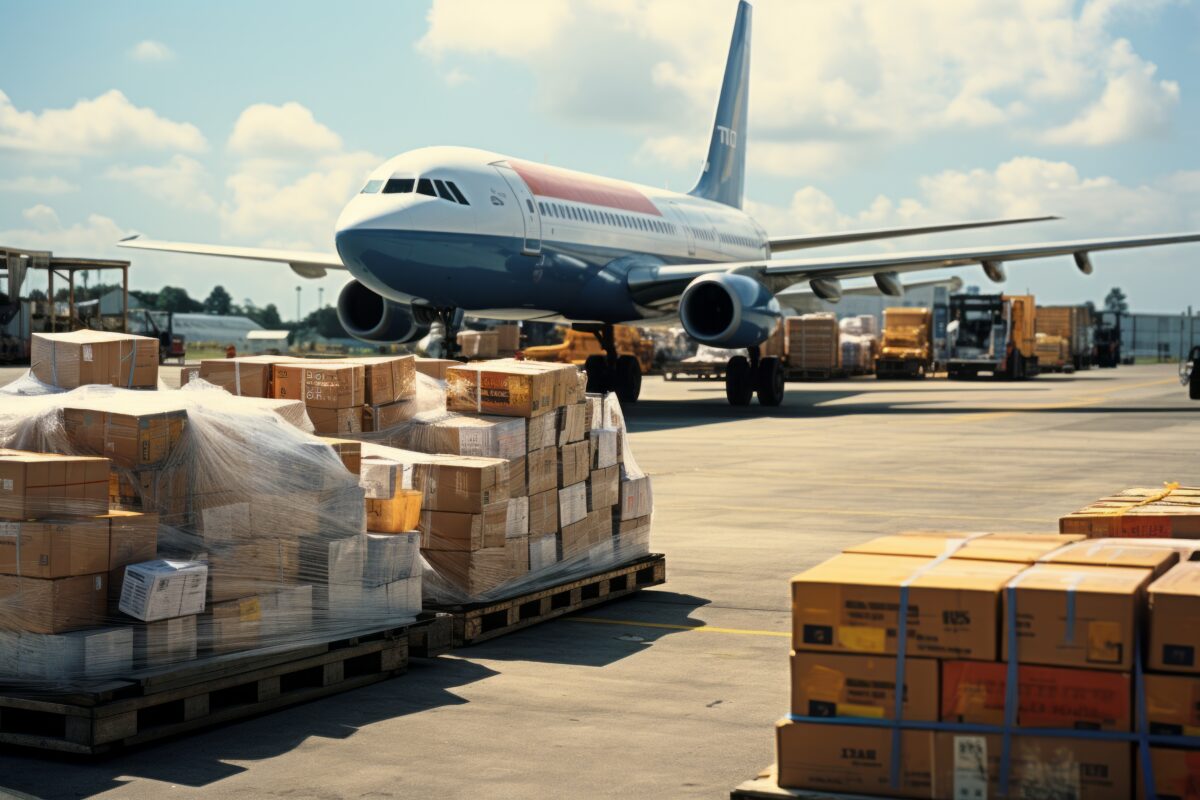
Our services
For our air freight shipping service from Freight Rangers, we understand the importance of fast and secure transportation for your goods. We ensure that all of your cargo reaches its destination efficiently and seamlessly.
Air freight services are tailored to meet the unique demands of your business, providing you with flexibility and peace of mind. We prioritize safety and reliability, and we keep a close eye on your shipments every step of the way. Choose Freight Rangers for air freight shipping that soars above the rest.
Our Air Freight Process
Freight Rangers, we understand that speed and precision are the core of successful air freight operations. That’s why we’ve developed a systematic process to ensure every shipment reaches its destination safely and on time. As a trusted freight forwarder Thailand air freight service provider, our team offers comprehensive solutions from origin to destination. Our key process steps include:
1.Receiving Requests and Planning the Shipment
We begin by gathering shipment details from the client such as product type, quantity, weight, and destination. This information allows us to plan the most efficient air freight route in terms of both time and budget.
2.Packing and Document Preparation
Our team ensures all goods are packed according to air freight standards and prepares all required documentation, including the commercial invoice, air waybill (AWB), and any necessary certificates.
3.Customs Clearance
As experienced professionals in freight forwarder Thailand air freight, we assist clients in completing both import and export customs procedures accurately and efficiently minimizing delays caused by paperwork or regulatory issues.
4.Airline Coordination and Shipment Tracking
We reserve cargo space with the most suitable airlines and keep clients informed of their shipment’s status through a reliable tracking system, ensuring full visibility throughout the journey.
5.Safe Delivery at Destination
Upon arrival, we handle cargo reception, perform condition checks, and ensure the goods are delivered to the final recipient as specified by the client—with speed and care.
With years of experience and expertise in freight forwarder Thailand air freight, Freight Rangers is your dependable partner for both domestic and international air cargo solutions.
FAQs
What goods are transported by air freight?
Air freight accommodates a wide range of goods due to its speed and efficiency.
Perishables
- Fruits and vegetables with short shelf lives like berries, mangoes, and asparagus
- Freshly cut flowers for special occasions or events
- Seafood like lobster, oysters, and salmon
Pharmaceuticals and Medical Supplies
- Life-saving medications and vaccines requiring rapid delivery
- Temperature-controlled pharmaceuticals that need specific environments during transport
- Medical equipment like MRI machines or surgical instruments for time-sensitive procedures
Valuable Goods
- Jewelry, precious metals, and gemstones requiring enhanced security measures
- High-end fashion items and luxury goods for boutiques or special events
- Artwork and antiques that need careful handling and fast delivery
Electronics and High-Tech Equipment
- Latest computer components and servers for immediate deployment
- Cutting-edge mobile phones and consumer electronics for rapid market entry
- Sensitive scientific equipment that needs to arrive at research facilities quickly
Machinery and Spare Parts
- Critical parts for production lines to minimize downtime in factories
- Heavy machinery for construction projects requiring swift transportation
- Replacement parts for airplanes and other vehicles needing urgent repairs
Which is cheaper shipping by air or sea?
Here’s some differences of the cost factors
- Distance : Shipping costs by both air and sea increase with distance. However, the cost difference between air and sea becomes clearer over longer distances.
- Weight and Volume : Normally, air freight pricing is typically based on weight. But some airlines consider a dimensional weight if it’s higher than the actual weight. Sea freight, on the other hand, primarily focuses on actual weight.
- Fuel prices : Air freight is more susceptible to fluctuations in fuel prices compared to sea freight.
Is air freight expensive?
Air freight can be expensive compared to other shipping methods. However, the cost needs to be weighed against the benefits it offers
- Air freight provides the fastest mode of international shipping for time-sensitive goods that could lose value if delayed.
- Faster transit times minimize the risk of damage or spoilage that can occur during long sea voyages.
- Improved inventory management: Faster delivery cycles allow businesses to maintain lower inventory levels, reducing storage costs.
- Air cargo generally benefits from stricter security protocols compared to sea freight.
How does air freight differ from other shipping methods like sea or ground transportation?
Here’s some guides for those who may wonder how does air freight differ from other shipping methods like sea or ground transportation
Speed : Air freight gets your goods across distances in a matter of days, while sea freight can take weeks and ground transport (depending on distance) can take days or even weeks.
Cost : Air freight is the most expensive option due to the high cost of fuel and operating aircraft. Sea freight is by far the most economical, especially for large volumes, while ground transport falls somewhere in between depending on distance and urgency.
Capacity : Airplanes have limitations on weight and size compared to ships and trucks. So, air freight is ideal for smaller, lighter items or high-value cargo.
Environmental Impact : Air travel has a higher carbon footprint than ships or trucks. If you’re eco-conscious, sea or ground freight might be a better choice for non-perishable goods.
What documentation is required for air freight shipments?
Several documents are typically required for air freight shipments
- Commercial Invoice: This document details the transaction between buyer and seller, including product descriptions, quantities, and values.
- Packing List: This document provides a detailed breakdown of the shipment’s contents, including item descriptions, quantities, weights, and packaging information.
- Bill of Lading (BOL): This document serves as a contract between the shipper, carrier, and consignee, outlining the shipment details and responsibilities of each party.
- Certificate of Origin: This document certifies the country where the goods were produced. It may be required by the destination country for customs clearance.
Required documents and Incoterms handling
We assist with preparing the necessary shipping documents such as the Air Waybill, Commercial Invoice, Packing List, and Certificates of Origin. We also help you navigate Incoterms to ensure smooth responsibility sharing.
Our work
